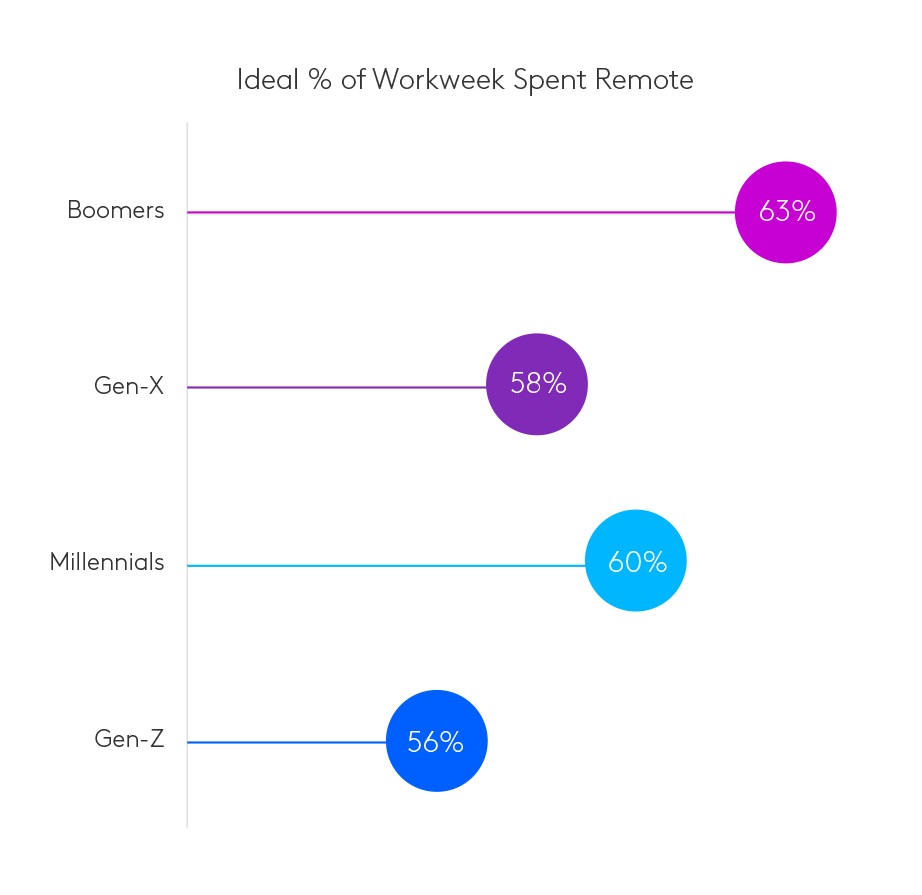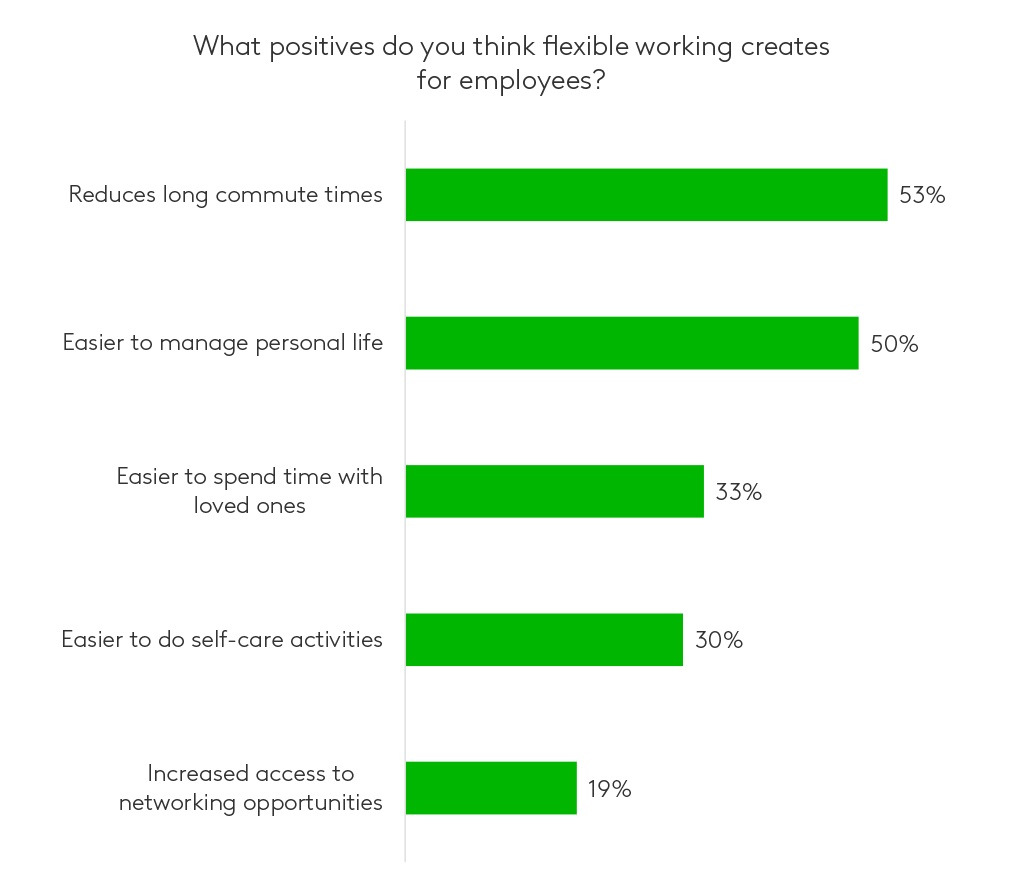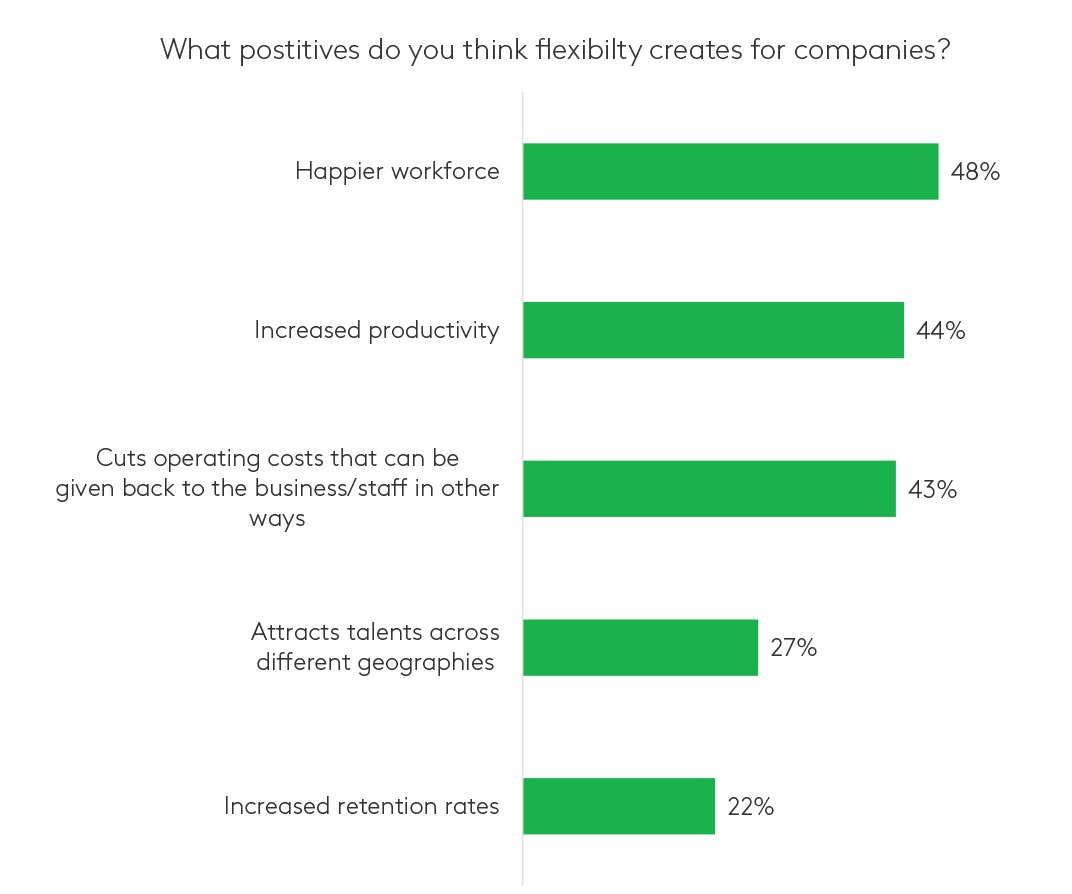The future of work has been a topic on many people’s minds for years. However, the global pandemic has caused a radical and expedited transformation of how people work today. Even as workplaces reopen gradually in some markets, many employees expect to remain in hybrid settings.
In fact, Kantar recently found that 68% of hybrid workers globally say they spend more time working remotely now than pre-pandemic. The increasing time spent working remotely results in a continuous reflection on what we find truly necessary for life. For example, some companies have allowed people to work from home permanently in response to the change, and others are implementing a shorter 4-day workweek.
Kantar recently conducted a global study among full and part-time workers whose job function could at times be performed remotely. Speaking to people across different generations in eight major markets, we asked how people feel about the future of work, their career decisions, and what positives and negatives the rise of hybrid working can bring to employees and companies.
Workers prefer to spend more time remotely
One of our findings was that, globally, all workers prefer a higher proportion of time working remotely than they currently have. This is true for all generations, and tends to increase with age.
Gen-Z (ages 18-24 years old) would ideally like 56% of their working time to be spent off-site, rising to 63% for Boomers (aged 56-75). The proportion of ideal time worked remotely is highest for India and Singapore (54%) and lowest for China (40%).

Workers are satisfied overall with their employer’s current remote-work policies
86% of respondents are satisfied with their employer’s remote-working policy, with only 6% saying they are unsatisfied. This is consistent across age groups. Satisfaction is highest in India (95%) and lowest in Singapore (78%).
Satisfaction increases significantly with flexibility. Globally, 68% of those who think their employers have a ‘very flexible’ remote-working policy report being ‘very satisfied’ with this. For a ‘somewhat flexible’ policy, this drops to only 21% being ‘very satisfied’.
Although younger respondents don’t necessarily want more time working remotely, flexibility is more important for them. 86% of Gen-Z respondents say that the option of hybrid working was a deciding factor in taking a new role, or staying with their current role. This falls with age, sitting at 66% for Boomers.
Similarly, 63% of Gen-Z are currently looking for a new role partly because of remote-working policies in their current role. This falls to 30% for Boomers.
Workers are more likely to accept an entirely remote-based job
Respondents are more likely to accept a role if it is entirely remote-based rather than entirely office-based. Globally, 82% would accept an entirely remote-based job, only 69% an entirely office-based job. In France and Germany, however, roughly the same amount of people would accept an entirely remote-based job as an entirely office-based one.
Workers find flexibility creates more benefits for employees
Globally, 70% of respondents believe flexible working brings overall benefits to the employee, with only 5% seeing overall negatives. This is consistent across generations and, broadly, across countries. Brazilian respondents (85%) are most likely to feel there are more positives, while French respondents (59%) the least.

The most commonly perceived benefit is the reduction in long commute time, chosen by 53% of respondents globally (and more often by older respondents: 63% of Boomers versus 40% of Gen-Z).
In France, Germany and Brazil, shortened commute time is the most selected positive of hybrid working. Around 60% of respondents in the three countries selected this option. The second most commonly perceived benefit is the ease of managing home and personal life, chosen by roughly 50% of all generations.
Of the relatively few respondents (5%) who thought more flexible working caused problems for employees, the most commonly chosen issues are: being harder to separate work and personal time; distractions around the home; and challenges in communicating with co-workers. Each of these was chosen by roughly a third of those respondents.
Workers find flexibility creates more benefits for companies
65% of global respondents feel flexible working brings benefits to the company. Brazil has the highlight percentage of respondents (78%) who believe that companies generally benefit from hybrid working, followed by India (76%) and China (70%). Generationally, younger workers (below 40 years old) are more likely to think companies benefit from flexible working.
The greatest perceived benefits are a happier workforce (chosen by 48%), increased productivity (44%), and a reduction in operating costs, which could then fund benefits to the workforce (43%).

Only 6% think it brings overall disadvantages to the company. Of those who think it would bring overall problems to the company, most focus on difficulties in team bonding or communication, or decreased productivity.
Hybrid workers want home-office support
When asked what employers should focus on when developing or maintaining their remote workforce, the most commonly chosen option (from 39% of respondents globally) was to help remote workers build and maintain their home offices.
This tends to be viewed as more important by older workers, whereas ‘employee growth’, chosen by 30%, shows the reverse pattern amongst the age groups. Mentorship is also seen as more important by younger generations, but ‘fostering a culture of inclusion’ has more adherents among older employees.
Get more answers
For more findings from this study, access the complete Community Report: Connecting with Hybrid Workers. Find additional generational and country-specific answers on sentiments toward hybrid working, changes in shopping behaviours and payment methods due to hybrid working, and hybrid working’s impact on lifestyle, health, and more.
About this study
This research was conducted online among 7,985 full or part-time workers (whose job function could be performed remotely at least part-time) across eight global markets: US, UK, France, Germany, India, Singapore, Mainland China and Brazil between 14-15 January 2022. All interviews were conducted as online self-completion and collected based on controlled quotas evenly distributed between generations and gender by country.
Respondents were sourced from the Kantar Profiles Audience Network.

